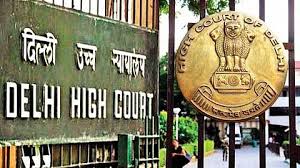1. Heard Counsel for the parties.
2. In all these petitions, the respondent bank is Multi State Co-operate Bank. The petitioner in respective petitions have challenged the proposed coercive action of the respondent bank on the ground that the respondent bank, being a Multi State Co-operative bank is not a bank within the meaning of Section 2(c) of the Securitisation and Reconstruction of Financial Assets and Enforcement of Security Interest Act, 2002. The Multi State Co-operative bank could be treated as a bank for the purpose of Act of 2002, if the Central Government were to issue notification specifying the Multi State Cooperative bank. However, the notification issued by the Central Government dated 28-01-2003 is only in respect of Co-operative bank as defined in Clause (cci) of Section 56 of the Banking Regulation Act, 1949, as bank for the purpose of Act of 2002. The definition of "Co-operative Bank" provided in Section 56(cci) of the Banking Regulation Act, 1949, means a state cooperative bank, a central co-operative bank, and primary co-operative bank.
3. It is common ground that the respondent bank being a multi state co-operative bank, is neither a state co-operative bank nor a central co-operative bank as such. The question is whether the respondent bank is a primary cooperative bank. The term "primary co-operative bank" is defined to mean a co-operative society other than a primary agricultural credit society and which ought to fulfill the three requirements provided in Section 56(ccv). According to the petitioners, the respondent cooperative bank does not fulfill the condition Nos. 1 and 3 of the said provision, namely, that the primary object or principal business of which is the transaction of banking business and that the bye-laws of which do not permit admission of any other co-operative society as a member. For that reason, according to the petitioners, the respondent bank cannot be considered a bank within the meaning of Act of 2002.
4. Our attention is invited by the Counsel for the respondent bank to the decision in the case of
5. The next question is what interim relief should be granted during the pendency of these petitions. In our opinion, the fact that the petitioners have availed of loan facility in each of these cases, is not in dispute. The petitioners are liable to pay at least the principal amount and the contractual interest thereon to the respondent banks. Even if the petitions are admitted, that does not mean that the liability to pay the amount to the respondent bank has ceased. In the circumstances, in the interest of justice, we think it appropriate to grant interim protection to the petitioners on condition that the petitioners shall pay at least 50% of the outstanding dues as on this date to the respondent bank within four weeks from today and produce proof thereof in the Registry within such time. Failing which, not only the interim protection would stand vacated, but even the concerned Writ Petition(s) would stand dismissed for non prosecution without further reference to the Court.
6. Needless to observe that it will be open to the parties to agitate all contentions available to them at the final hearing. The observations made hereinabove are only to highlight as to why we think it appropriate to admit these petitions.
7. Be that as it may, we fail to understand as to why the Multi State co-operative banks are keen to pursue remedy under the Act of 2002 and keep the claim subjudice, especially when the banks are fully empowered to pursue their claim against the petitioners by invoking remedy u/s 84 of the Multi-State Co-operative Society Act, which remedy by no standards is less efficacious. It will be open to the respondent bank to take recourse to that remedy in spite of pendency of these petitions. Needless to mention that the amount paid by the petitioners pursuant to this order, will have to be given due adjustment in that proceedings.

